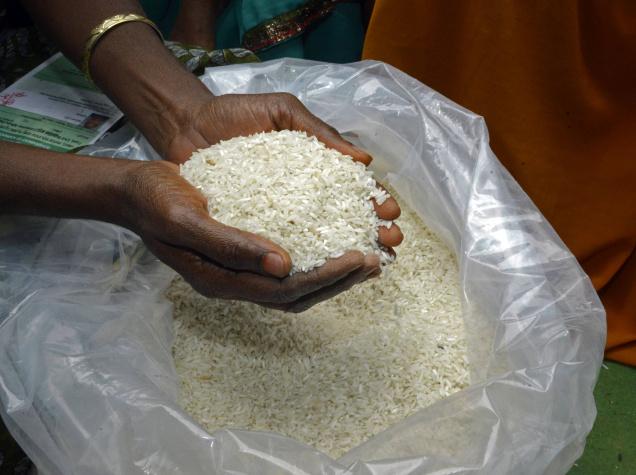Bangalore, September 12: Even as every Below Poverty Line (BPL) family is assured of rice at Re. 1 a kg for a maximum of 30 kg, charging more than the fixed price and distributing less than the stipulated quantity are common complaints across the State.
When The Hindu visited a fair price shop at Salagame in Hassan district, about 9 km from Hassan city, beneficiaries were being provided only 29 kg of rice. The shopkeeper was collecting Rs. 135 from a beneficiary who is entitled to 30 kg of rice, 1 kg sugar and 5 litres of kerosene. “I gave Rs. 200 and he returned Rs. 60 and a soap worth Rs. 5,” said Mallikarjun, a BPL cardholder.
Ramesh, an autorickshaw driver in Shimoga, complained that a few ration shops on the city’s outskirts charged Rs. 1.5 to Rs. 2 for a kg of rice to make good the expense they incur towards transportation.
There were also complaints in Dharwad of fair price shop owners cheating with weights where there no e-rationing machines. Of the 515 fair price shops in Darwad only 144 have installed e-rationing machines.
In Belgaum, following complaints, the Food and Civil Supplies Department has suspended supplies to five shops in the district and made alternate arrangements. Yellaiah Nidgundi, owner of a PDS retail outlet at Nandikur village on the outskirts of Gulbarga city, candidly admitted he was providing only 28 kg of rice to BPL cardholders instead of 30 kg as prescribed by the government and he had collected Rs. 35 for the rice. He said he had no other alternative since he was supplied less quantity of rice. “If I provide as stipulated, I will not be able to meet the demand of all the cardholders.”
N. Manjunath, secretary of Mysore PDS Dealers’ Association, demanded hike in commission to PDS dealers from Rs. 31 to Rs. 50 per quintal of rice distributed under the scheme. Mysore has unique problems as the biometric machines installed in PDS fair price shops. There is trouble reading the biometric data.
One person, who runs a PDS shop in Kailasapuram in Mysore, said ration was being distributed to at least 250 BPL cardholders a day before the machines were introduced. “We were able to distribute ration to not more than 100 cardholders a day with the biometric as distribution to each beneficiary takes about 10 to 15 minutes,” he said. Many beneficiaries The Hindu spoke to also said though availability of rice at Re. 1 was a relief, they had to buy wheat and other food items in the open market.
As Nagarajappa of Tavaradevarakoplu village in Hassan district put it, what rankles is also that this food security initiative for the poor has attracted derision from those who are better off. “All middle-class and rich families get subsidised LPG cylinders. The subsidy provided per cylinder is more than the amount spent by the government to provide rice for a BPL family,” he said.

